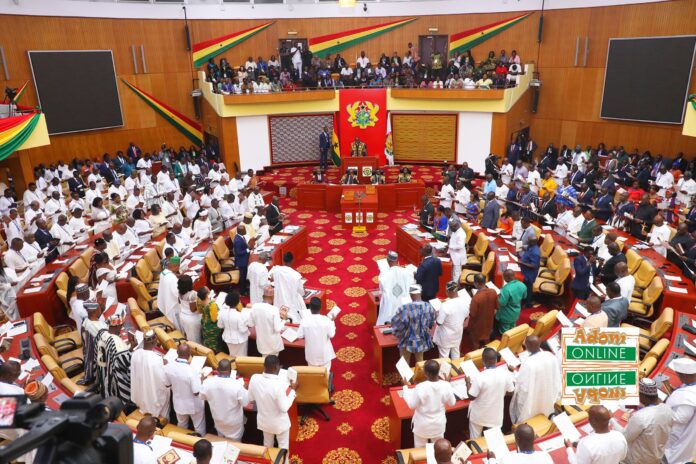Introduction – General Overview
In governance systems, the three arms of government—executive, legislature, and judiciary—work together to ensure a functioning democracy.
The Parliament of Ghana, one of these arms, plays a central role in the country’s governance. As outlined in Article 93 of the 1992 Constitution of Ghana, the primary responsibility of Parliament is to exercise legislative power in line with the Constitution.
Parliament’s functions include law-making, serving as a check on executive power through financial oversight, responding to citizens’ grievances, and engaging in debates on national issues. In Ghana, parliamentarians are directly elected from constituencies, representing the people of Ghana in the legislature.
Historical Background
Ghana, then the Gold Coast, established its first Legislative Council in 1850, which advised the colonial Governor on enacting legislation.
The Council was purely advisory, with the Governor holding all executive and legislative powers. In 1916, the Council was reconstituted to include six Africans, out of a total of eleven officials and the Governor.
With the Guggisberg Constitution of 1925, the Governor still held full control over the legislature. However, the 1946 Burns Constitution allowed for the majority of the Legislative Council members to be elected representatives.
The Governor ceased to be the ex-officio President, a trend that continued until 1951, when the first Speaker of the Legislature was elected under the 1950 Constitution.
In 1951, 75 Members of the legislature were elected, including three ex-officio Members and six special Members representing commercial and mining interests.
The 1954 transitional Constitution saw the first Speaker and 104 Members elected on political party lines.
After Ghana’s full independence in 1957, the country adopted a system modeled after the Westminster model. In 1960, ten women were elected to fill specially created seats, allowing women to participate in parliamentary life.
In 1964, Ghana adopted a one-party system. The Parliament’s instability grew after the 1966 military coup, which dissolved the National Assembly.
Parliament resumed in 1969, but instability persisted due to military rule. The 1981 coup led to another suspension of parliamentary democracy until 1993, when constitutional rule was restored, marking the beginning of Ghana’s longest uninterrupted republican status with a stable Parliament from 1993 to 2021.
Parliamentary Committees
The Parliament of Ghana operates through several committees to aid in its functioning:
Standing Committees
Select Committees
Ad-Hoc Committees
Among the 14 standing committees are the Appointments, Public Accounts, Special Budget, Judicial, Privileges, and Members Holding Office of Profit Committees. Select Committees such as Communication, Education, Health, Agriculture and Cocoa Affairs, Lands and Forestry, Roads and Transport, and Works and Housing also play essential roles, with the Poverty Reduction Strategy Committee being the only ad hoc committee.
Amendments to Committees
On June 27, 2023, Parliament introduced a new standing order to improve the functioning of its committees. These changes led to the creation of 34 committees, including new ones such as the Ways and Means, Human Rights, Private Members, and Judiciary Committees. Additionally, the Economic and Finance, and Power and Energy committees were decoupled. The Assurances Committee was given enhanced powers to directly call on state agencies.
Some leadership changes also occurred, with opposition members now chairing the Public Accounts Committee and other key committees.
Current State of Parliament
Members of Parliament (MPs) meet regularly to deliberate on a wide range of issues, from budgets and bills to national concerns. The Speaker introduces matters on the floor, while the Clerk of Parliament facilitates parliamentary business. While the public gallery allows citizens to witness debates, they are not allowed to partake in the proceedings.
The Eighth Parliament of the Fourth Republic saw significant changes, including the transition of leadership from the NDC to the NPP. The Majority Leader is Hon. Osei Kyei-Mensah Bonsu, while the Minority Leader was Hon. Haruna Iddrisu, until recently when Mahama Ayariga took over.
The Speakers of Parliament
Ghana has had 13 speakers from 1951 to 2021, with seven under the Fourth Republic. Notably, Joyce Adeline Bamford Addo remains the only female Speaker. Other prominent speakers include Rt. Hon. Daniel Francis Annan, Rt. Hon. Peter Ala Adjetey, and Rt. Hon. Alban Kingsford Bagbin, the current Speaker.
The Parliamentary Service Board, established in 1993, facilitates the work of Parliament and ensures smooth functioning. Parliament’s work involves extensive scrutiny of financial, legal, and public sector issues, all of which contribute to the democratic process.
Conclusion
Ghana’s Parliament has experienced significant evolution, from its early advisory role to the current functioning, democratic body.
It has faced numerous challenges, including political instability and disagreements between the NPP and NDC factions. The Eighth Parliament, in particular, marked the first time in Ghana’s history with a hung Parliament, with a mix of opposition and ruling party members creating a delicate balance of power.
Ghana’s Parliament plays an essential role in the country’s democracy and rule of law. However, it remains the duty of citizens to remain vigilant and engage with parliamentary processes to ensure accountability and progress.
Note: Material support from parliamentary portals has been utilized in writing this piece.

